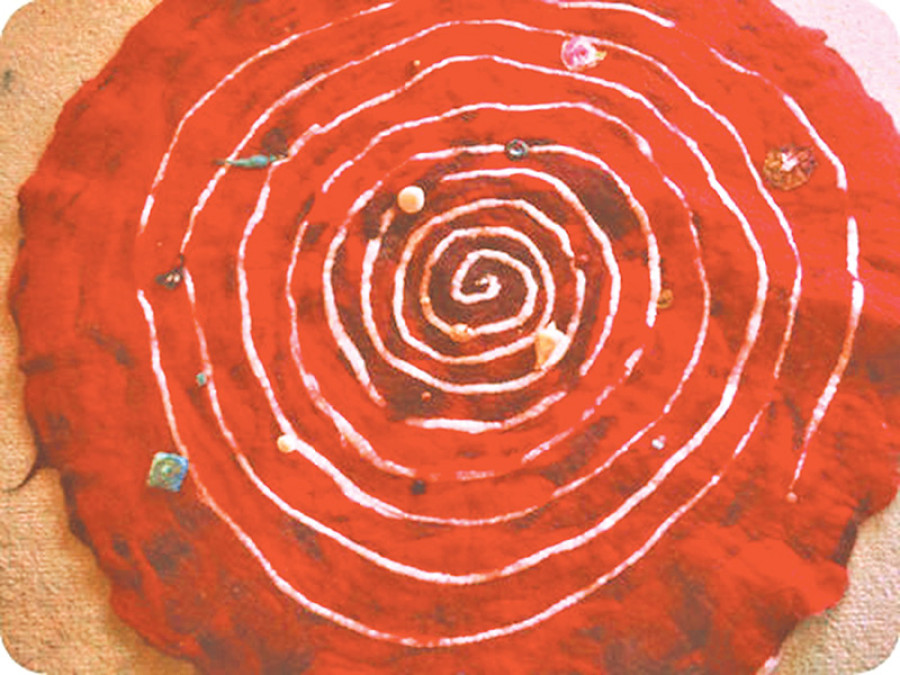Opinion
Old beliefs die hard
Let me take the liberty to change the famous Nepali axiom—“Dhilo hos chhoraii hos” (it doesn’t matter how long it takes, but let me have a son) to “Dhilo hos chori naii hos” (it doesn’t matter how long it takes, but let me have a daughter) in relation to the welcome enactment of a new law criminalising the Chhaupadi custom.
Let me take the liberty to change the famous Nepali axiom—“Dhilo hos chhoraii hos” (it doesn’t matter how long it takes, but let me have a son) to “Dhilo hos chori naii hos” (it doesn’t matter how long it takes, but let me have a daughter) in relation to the welcome enactment of a new law criminalising the Chhaupadi custom.
Though this practice was outlawed by the Supreme Court long ago, recently the Parliament of Nepal endorsed a new code that criminalises the Chhaupadi practice. While some applauded the news, others raised questions. Will the enactment of the law that entails a punishment of a three month jail sentence or about $30 of fine, or both, stop this practice? United Nations statistics claim that, even now, more than 90 percent of the women in Accham district are made to practice Chhaupadi.
Understanding the practice
The Chhaupadi practice is derived from a Hindu tradition that relates to secretions associated with menstruation and childbirth. The word Chhaupadi is believed to have originated from a combination of two local words “Chhau” and “Padi” from Achham district in far-western Nepal.
Chhau means menstruation and Padi means a woman. Under this practice, women are considered impure during their periods and are therefore required to refrain from participating in normal day-to-day activities. They are only allowed to bathe or wash clothes in a ‘Chhaupadi dhara’—a separate water source such as a well or a stream near the village. They are also forced into isolation and confinement inside a shed. These sheds lack basic safety features, resulting in increased vulnerability. Some women have even died because of a lack of treatment for curable illnesses that afflicted victims as a result of poor shed conditions.
There are two types of Chhau—major and minor. Minor Chhau is practiced when a girl or women goes through her monthly menstruation; they are sent to live in the sheds for five days. However, during major Chhau which occurs during childbirth and menarche, women and girls are confined to sheds for 11 days.
Chhaupadi is primarily driven by a superstitious belief that if women stay at home during their periods, their families will suffer from misfortune because a menstruating women’s so-called impurity will infuriate God. Women who do not strictly practice Chhaupadi are held responsible for crop failure, death and disease in the family, occurrence of natural disasters, drying up of water sources, death of cattle, and the like. This is how the Hindu orthodox have rationalised this practice.
Long-lasting effects
Aru Bhattarai (name changed), a 40 years old obstetrician living in Kathmandu is an independent modern woman. In our recent conversation about the new law on Chhaupadi, she candidly shared her experience of menarche and about how that trauma still lingers in her mind.
“I was 12 years old when I saw a stain of blood on my underwear for the first time. I didn’t realise that I was having a menarche until my mother told me. In our school, we were taught about the reproductive system, but teachers never bothered to explain how the system is linked to the female monthly cycle and what changes happen during adolescence after menarche.
That day, sitting in a dark room, my sister-in-law told me about the bloody monthly cycle. But the description she gave me was all about the do’s and the don’ts. I was told that, because I was menstruating, I was considered impure and hence I was not allowed to touch things in the kitchen, male members of the family, Basil and Bodhi trees, and cows and calves. I was strictly warned not to enter the Kuldevata (clan deity) room.
It was a very agonising experience and whenever I think back to those times, I still get goose bumps. This stigma has impacted my life in such a way that, even now, I can’t enter a shrine during my period and also try not to enter the kitchen. Though my husband and I have broken this taboo by making sure that our two daughters don’t have to observe any prohibitions during menarche, I am still affected by my experience of menstruation.”
There are many Arus living under the veil of this notion of impurity even today. Aru’s case clearly characterises how the belief system and subsequent exclusion affects womens’ psychological well-being throughout their lives.
Getting more done
Along with the enactment of the law, the government could have announced affirmative action programs towards ending this discriminatory practice. That calls for a prolonged multi-sectoral involvement of the government, not-for profit organisations, UN agencies, community based organisations, and local people, especially young boys and girls. Special socio-medical cells should be created at the local level for education, awareness and health care of girls and women.
Social media could be effectively utilised to challenge the stigma and taboo surrounding menstruation and Chhaupadi. Resource persons and health care volunteers should undertake filed visits to talk to villagers about the harmful impact of the Chhaupadi practice on women’s health and overall family wellbeing.
Age-old patriarchal institutions have predefined and enforced men and women’s roles and responsibilities. Women are often subjugated through acts of prejudice. This has led to unequal power relation between women and men, it has also contributed to a vicious cycle of vulnerability for women. Undoubtedly, laws and public policies are critical to curb an abusive practice like Chhaupadi.
- Upadhyay writes on contemporary social issues, natural resource management and sustainable development




 14.24°C Kathmandu
14.24°C Kathmandu










